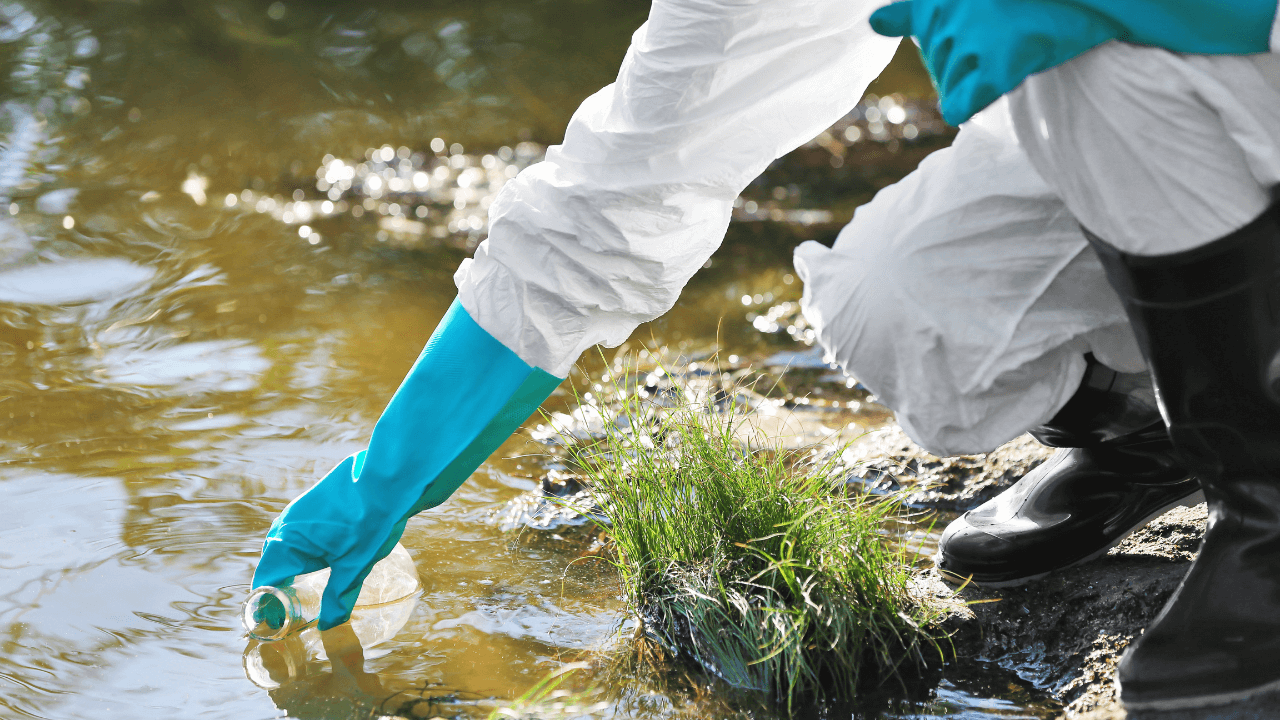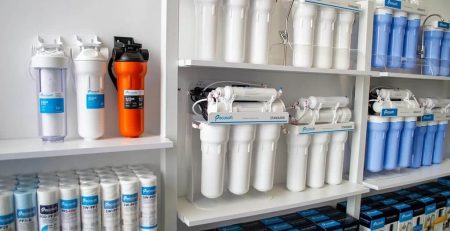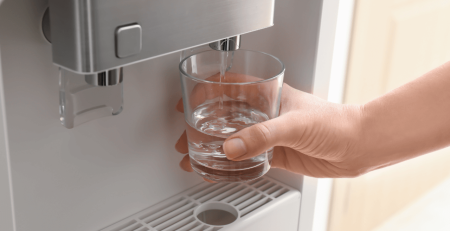How Pollution in Rivers and Lakes Affects Your Water and the Need for Filters?
Water is a precious resource, yet its purity is increasingly under threat. Rivers and lakes, which are crucial sources of freshwater, are being polluted at an alarming rate due to human activities. This pollution has a direct impact on the quality of water that reaches our homes, making the need for effective water filtration more critical than ever. In this article, we will explore the various sources of pollution in rivers and lakes, how this pollution affects your drinking water, and why investing in high-quality refrigerator filters, such as those offered by Filter For Fridge, is essential for safeguarding your health.
Understanding Water Pollution in Rivers and Lakes
- The Growing Problem of Water Pollution
Water pollution occurs when harmful substances contaminate water bodies, making them unsafe for drinking, swimming, and supporting aquatic life. Rivers and lakes are particularly vulnerable to pollution because they are often downstream from industrial, agricultural, and urban areas. As pollutants accumulate, they can have devastating effects on both the environment and human health.
- Major Sources of Pollution
Several key sources contribute to the pollution of rivers and lakes:
- Industrial Waste: Factories and industrial plants often discharge waste products directly into nearby rivers and lakes. These wastes can include heavy metals, toxic chemicals, and organic pollutants, which can persist in the environment for years.
- Agricultural Runoff: Fertilizers, pesticides, and herbicides used in agriculture can be washed into rivers and lakes during rainfall. These chemicals can lead to nutrient pollution, which causes excessive growth of algae and other aquatic plants, disrupting ecosystems and harming water quality.
- Urban Runoff: In cities and towns, rainwater can pick up pollutants from roads, buildings, and other surfaces before flowing into rivers and lakes. This runoff can contain oil, grease, heavy metals, and other contaminants that degrade water quality.
- Wastewater Discharge: Municipal wastewater, which includes sewage and greywater, can introduce pathogens, nutrients, and chemicals into water bodies if not properly treated. Even treated wastewater can contain trace amounts of pharmaceuticals and other pollutants.
- Plastic Pollution: Plastics are a significant source of pollution in rivers and lakes. Microplastics, which are tiny plastic particles, can absorb toxic chemicals and then be ingested by aquatic organisms, entering the food chain and eventually affecting human health.
- Impact on Aquatic Ecosystems
Pollution in rivers and lakes can have severe consequences for aquatic ecosystems. Excess nutrients, primarily from agricultural runoff, can lead to eutrophication, a process where water bodies become overly enriched with nutrients, causing rapid algae growth. These algal blooms can deplete oxygen levels in the water, leading to dead zones where aquatic life cannot survive. Additionally, toxic substances from industrial and urban runoff can accumulate in the tissues of fish and other aquatic organisms, making them unsafe for consumption and disrupting the natural balance of ecosystems.
How Pollution in Rivers and Lakes Affects Your Drinking Water
- Contaminants in Your Water Supply
The pollution of rivers and lakes directly impacts the quality of water that is supplied to homes. Many communities rely on surface water sources, such as rivers, lakes, and reservoirs, for their drinking water. When these sources are polluted, contaminants can make their way into the water supply, even after it has been treated at a water treatment plant.
Some of the most common contaminants found in drinking water due to river and lake pollution include:
- Heavy Metals: Metals like lead, mercury, and cadmium can leach into water from industrial waste and contaminated sediments. These metals are toxic and can cause serious health issues, particularly in children.
- Pathogens: Bacteria, viruses, and parasites from untreated sewage and animal waste can contaminate water sources, leading to waterborne diseases. Cryptosporidium and Giardia are two common pathogens that can survive standard water treatment processes.
- Pesticides and Herbicides: Agricultural runoff can introduce chemicals designed to kill pests and weeds into water sources. These substances can have harmful effects on human health, including disrupting hormonal systems and increasing the risk of cancer.
- Nutrients: Excessive nutrients, such as nitrates and phosphates, can cause algal blooms that produce toxins harmful to both humans and animals. Drinking water contaminated with these toxins can lead to illnesses like liver damage and neurological issues.
- Pharmaceuticals and Personal Care Products: Traces of medications and personal care products can enter water bodies through wastewater discharge. While these substances are typically present in low concentrations, their long-term effects on human health are not fully understood.
- Limitations of Municipal Water Treatment
Municipal water treatment plants are designed to remove a wide range of contaminants from drinking water, but they are not foolproof. Certain pollutants, particularly those that are dissolved in water, can be difficult to remove completely. For example, traditional water treatment methods may not fully eliminate pharmaceuticals, microplastics, or some heavy metals.
Moreover, the infrastructure of many water treatment facilities is aging, and these systems may not be equipped to handle the increasing levels of pollution found in rivers and lakes. This means that even treated water can contain trace amounts of harmful substances, highlighting the importance of an additional layer of protection—such as a refrigerator filter—to ensure your water is as clean as possible.
The Importance of Refrigerator Filters in Protecting Your Health
- How Refrigerator Filters Work
Refrigerator filters provide an additional layer of filtration that can remove contaminants missed by municipal water treatment. These filters typically use activated carbon, a highly porous material that effectively adsorbs a wide range of impurities, including chlorine, volatile organic compounds (VOCs), and certain pesticides.
As water passes through the activated carbon in the filter, contaminants are trapped within the carbon’s pores, resulting in cleaner, safer water. Filters like the Kenmore refrigerator filter and EveryDrop water filter are designed to reduce a variety of harmful substances, improving both the taste and quality of your drinking water.
- Benefits of Using Refrigerator Filters
There are several key benefits to using a high-quality refrigerator filter, especially in a world where water pollution is a growing concern:
- Improved Water Quality: Refrigerator filters help remove contaminants that can affect the taste, odor, and safety of your water. This includes chlorine, lead, and other pollutants that may be present even after municipal treatment.
- Convenience: A refrigerator filter provides a convenient source of clean water directly from your fridge, eliminating the need for bottled water or separate filtration systems.
- Cost-Effectiveness: Compared to other filtration methods, such as whole-house systems or under-sink filters, refrigerator filters are relatively affordable and easy to maintain. Regular replacement of the filter ensures ongoing protection against contaminants.
- Environmental Impact: By reducing the need for bottled water, using a refrigerator filter can help decrease plastic waste and lower your environmental footprint.
- Types of Contaminants Filtered
Refrigerator filters are effective at removing a wide range of contaminants commonly found in polluted water sources:
- Chlorine and Chloramine: These disinfectants are commonly added to municipal water supplies to kill pathogens. While effective, they can leave an unpleasant taste and odor in water. Filters like the GE MWF filter are designed to remove chlorine, improving the overall quality of your drinking water.
- Lead: Lead can leach into water from old pipes and plumbing fixtures, posing serious health risks. Refrigerator filters such as the EDR4RXD1 are certified to reduce lead levels, providing an important safeguard against this toxic metal.
- Pesticides and Herbicides: Agricultural runoff can introduce chemicals into water sources. Filters like the EveryDrop water filter are capable of removing certain pesticides, ensuring your water is free from these harmful substances.
- Volatile Organic Compounds (VOCs): VOCs are chemicals that can evaporate into the air and contaminate water supplies. They are commonly found in industrial solvents and other products. Filters such as the WF3CB are designed to reduce VOCs, making your water safer to drink.
- Microbial Cysts: Refrigerator filters can also trap microbial cysts, such as Cryptosporidium and Giardia, which are resistant to chlorine disinfection and can cause waterborne illnesses.
Choosing the Right Refrigerator Filter for Your Needs
- Compatibility
Before purchasing a refrigerator filter, it’s essential to ensure that it’s compatible with your refrigerator model. Different filters are designed to fit specific brands and models. For example, the Kenmore refrigerator filter is designed for Kenmore refrigerators, while the GE MWF filter is specifically for GE models. Check your refrigerator’s manual or consult the manufacturer’s website to find the correct filter for your appliance.
- Filtration Capabilities
Not all refrigerator filters are created equal. Some are more effective at removing specific contaminants than others. When choosing a filter, consider the types of pollutants that may be present in your water and select a filter that targets those substances. For instance, if lead contamination is a concern, choose a filter certified to reduce lead levels, such as the EveryDrop water filter.
- Certification
Look for filters that are certified by reputable organizations, such as NSF International. NSF certification indicates that the filter has been tested and verified to reduce specific contaminants. Filters like the EDR1RXD1 and W10295370 are NSF certified, providing assurance that they meet strict standards for water filtration.
- Filter Lifespan
Refrigerator filters need to be replaced regularly to maintain their effectiveness. Most filters, such as the ADQ36006101, have a lifespan of about six months, depending on usage and water quality. Be sure to replace your filter according to the manufacturer’s recommendations to ensure continuous protection against contaminants.
Maintaining Your Refrigerator Filter for Optimal Performance
- Regular Replacement
To keep your refrigerator filter working effectively, it’s crucial to replace it regularly. Over time, the activated carbon in the filter can become saturated with contaminants, reducing its ability to purify water. Most filters need to be replaced every six months, but you may need to do so more frequently if your water is particularly contaminated.
- Proper Installation
Proper installation is key to ensuring that your filter functions correctly. Always follow the manufacturer’s instructions when installing a new filter. Incorrect installation can lead to leaks or reduce the filter’s effectiveness, compromising the quality of your drinking water.
- Flushing the Filter
After installing a new filter, it’s important to flush it before use. Flushing involves running several gallons of water through the filter to remove any loose particles or carbon dust. This step ensures that the water you drink is clean and free of impurities.
- Monitoring Water Quality
Even with a high-quality filter, it’s a good idea to periodically monitor your water quality. If you notice changes in taste, odor, or appearance, it may be time to replace the filter or have your water tested for contaminants.
Conclusion: The Critical Role of Refrigerator Filters in a Polluted World
As pollution in rivers and lakes continues to rise, the quality of our drinking water is increasingly at risk. Contaminants such as heavy metals, pesticides, and pathogens can make their way into our water supply, even after municipal treatment. In this challenging environment, refrigerator filters play a vital role in ensuring that the water we drink is clean, safe, and free from harmful substances.
By investing in a high-quality refrigerator filter from Filter For Fridge, such as the Kenmore refrigerator filter, EveryDrop water filter, or GE MWF filter, you can protect your family from the dangers of waterborne contaminants. Regular maintenance and proper usage of your filter will help ensure long-term health benefits and peace of mind.
In a world where water pollution is a growing concern, having an effective refrigerator filter is not just a convenience—it’s a necessity. Take the first step toward safeguarding your family’s health by choosing a reliable filter from Filter For Fridge today.








